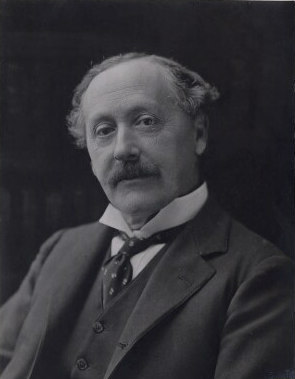Gladstone, Herbert John Gladstone, Viscount, 1854-1930
Enlarge text Shrink text- Letter. 1888 Feb. 24(name not given)
- RLIN, 3/28/97(hdg.: Gladstone, Herbert John Gladstone, 1st Viscount, 1854-1930; usage: The Rt. Hon. the Viscount Gladstone; Viscount Gladstone)
- OCALC
Herbert John Gladstone, 1st Viscount Gladstone (7 January 1854 – 6 March 1930) was a British Liberal politician. The youngest son of William Ewart Gladstone, he was Home Secretary from 1905 to 1910 and Governor-General of the Union of South Africa from 1910 to 1914. Appointed whip in 1899, Gladstone was an innovator who provided a long-term strategy, kept the party from splitting over the Second Boer War, introduced more modern constituency structures; and encouraged working-class candidates. In secret meetings with Labour leaders in 1903 he forged the Gladstone–MacDonald pact. In two-member constituencies, it arranged that Liberal and Labour candidates did not split the vote. Historians give him much of the credit for the Liberal triumph in 1906, with 397 MPs and a majority of 243. Rising to Home Secretary in 1906–1908, he was responsible for the Workmen's Compensation Act 1906, a Factory and Workshops Act, and in 1908 the eight hour working day underground in the Coal Mines Regulation Act 1908 (8 Edw. 7. c. 57). Historian John Grigg states that while his name is not often included in any list of radicals, his radical record is second to none in the Campbell-Bannerman Government. He was no firebrand but a good party man whose common sense inclined him to be less Gladstonian in the matter of state intervention then than his famous father had been. With his able under-secretary, Herbert Samuel, he sponsored no less than 34 Acts of Parliament during his time at the Home Office.
Read more on Wikipedia >
 Personality
Personality



